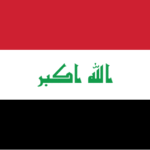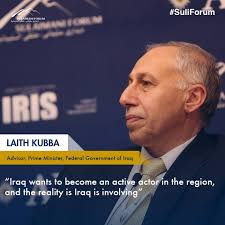 The largest mass protests to hit Iraq and Lebanon in decades are posing a direct challenge to the influence Iran has gained in both countries as demonstrators seek to overturn the political order, the Wall Street Journal reports (HT:FDD). Anti-government protesters crossed a major bridge in Baghdad on Monday, approaching the prime minister’s office and the headquarters of Iraq’s state-run TV, as security forces fired live ammunition and tear gas, killing at least five demonstrators and wounding dozens, Associated Press adds.
The largest mass protests to hit Iraq and Lebanon in decades are posing a direct challenge to the influence Iran has gained in both countries as demonstrators seek to overturn the political order, the Wall Street Journal reports (HT:FDD). Anti-government protesters crossed a major bridge in Baghdad on Monday, approaching the prime minister’s office and the headquarters of Iraq’s state-run TV, as security forces fired live ammunition and tear gas, killing at least five demonstrators and wounding dozens, Associated Press adds.
While Iran is the immediate target of the protesters’ wrath, the fight is larger than that. It is a struggle between younger Iraqis and an older, more cautious generation, between a political elite and a rising cohort that rejects their leadership, the New York Times reports:
It is a struggle, above all, between those who have profited handsomely since the American invasion toppled Saddam Hussein, and those who are struggling to get by and look on with fury as the political parties, some with ties to Iran, distribute payoffs to the well connected.

“It was exactly 99 years ago that the last great Iraqi revolution took place, it was totally Iraqi born,” said Laith Kubba (right), an adviser to the government [and a former Middle East director at the National Endowment for Democracy].
Iraqis have good reason to hold Tehran responsible for their problems at home, says analyst Eliora Katz. In Iraq’s last elections, the Popular Mobilization Forces (PMF)—a consortium of Iran-aligned militias institutionalized in 2016 by the Iraqi parliament—emerged as kingmakers, while Maj. Gen. Qassem Suleimani, chief of the Iranian Revolutionary Guards’ Quds Force, negotiated the arrangement that put the current parliament speaker, president, and prime minister in power, she writes for the Tablet. The day after the recent protests in Iraq began, Suleimani flew to Baghdad to head a meeting with security officials. Soon after Suleimani’s visit, the PMF deployed snipers in a brutal crackdown against Iraqi protestors.
Prime Minister Adel Abdul Mahdi has failed to address the demands of tens of thousands of protesters who have taken to the streets of Baghdad and southern cities since October 1, Iraqi political scientist Ghassan al-Attiyah told Al Jazeera.
Abdul Mahdi’s attempts to appease demonstrators demanding the government step down have misread the extent of the anger at the political class, accused of corruption and pillaging the oil-rich country, said Attiyah, founder of the Iraq Foundation for Development and Democracy.
The mobilization around the protests is constructing a new boundary within the Shia community, defined by socioeconomic and class identities, says Carnegie analyst Harith Hasan. It has the potential to transcend sectarian divisions and develop cross-sectarian solidarities, thus bringing into question the formula of sectarian quotas that has dominated the post-2003 political order. It has generated a new language of protest, directed against the dominant factions and their ideology: political Shiism.







